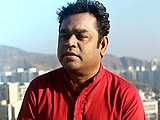Ulatu village in Namkum block of Ranchi district in the Indian state of Jharkhand paints an idyllic picture, nestled in a verdant and mountainous setting, tucked away from the hustle-bustle of urban life. Its scenic beauty notwithstanding, Ulatu is a poor village with majority of the population comprising low-literate smallholder farmers. The tiny village owes a lot to 32-year-old Gomeshri Munda for the progress it has seen in terms of community mobilization and microfinance.

Gomeshri Munda with his wife and son
Gomeshri belongs to the Munda tribal community, one of the major Adivasi (tribal) groups of Jharkhand. The oldest of three brothers and educated till 10th grade, he always nurtured a desire to help his community. Around eight years ago, while sitting under an old tamarind tree, watching women from his village carrying firewood which they would sell in the local markets to splurge on alcohol, Gomeshri was struck by a desire to motivate them to save at least INR 5 every week and plan for their future. During his visits to the neighboring village, Nichetoli, he would watch a team from NGO named Pradan, mobilizing self-help groups and learnt about bookkeeping. In 2007, without any external guidance or support, he mobilized the women into groups and linked them with banks.

Years later, Gomeshri’s groups continue to operate and he continues to function as their bookkeeper. From Rs 5 every week, the women farmers today save Rs 10 each per week, with an individual saving of around Rs 2,500 till date. The community refers to Gomeshri with respect as ‘Master ji’ or ‘<i>dada</i>’ for his relentless efforts toward community development.
In 2013, the Jharkhand State Livelihood Promotion Society (JSLPS) started their operations and formed women self-help groups (SHGs) across the state. In 2014, JSLPS included the groups formed by Gomeshri into its fold. Gomeshri was also the unanimous choice of the SHGs to be an Aajeevika Krishak Mitra (AKM) or community-level agriculture extension agent. Gomeshri was trained on providing extension services and disseminating information on preparing nadep compost, hanjeevamrit and other community-managed sustainable agricultural practices by the JSLPS team. Gomeshri received agricultural and non-agricultural trainings from JSLPS, such as system of rice intensification, system of crop intensification, non-pesticidal management and integrated nutrient management. He was also formally trained on bookkeeping.
To strengthen their extension services and increase reach and uptake of best practices, JSLPS collaborated with Digital Green to use the latter’s video-enabled behavior change communication approach. Gomeshri, like the other AKMs, was also trained on disseminating best practices through videos to SHGs. “Through the videos, I find it easier to explain best practices to the women,” he shared. Gomeshri makes an effort to translate and explain each point in case some video is not in the local language, Mundari.
Some of the best practices that the women in his SHGs have adopted after attending his video screenings include preparing organic compost through the Nadep method (using locally available resources), treating seeds with an organic solution and not spending their meagre savings on costly inputs like commercially sold fertilizers or pesticides. As an AKM, Gomeshri has facilitated the creation of 11 Nadep pits in the village, where all the farmers followed the same procedure as shown in the video, thus ensuring quality.

Dasmi Devi, Dasauli Self-Help Group, Ulatu village
“We made this compost as instructed by Gomeshri <i>dada</i>. We saw the video and learnt how to make this compost. This compost helps loosen the soil and increases its fertility, which leads to greater productivity.”

Purungi Devi, Dasauli Self-Help Group, Ulatu village
“We met in self-help groups. Gomei taught us about self-help groups and we also learnt about these practices by watching the videos he screened. Earlier, we used to transplant 30-day seedlings but now we transplant 10-15 day seedlings as part of the recommended system of rice intensification. This practice is beneficial to us.”

Jedauli Devi, Dasauli Self-Help Group, Ulatu village
“These days we use organic compost that we make ourselves using Nadep pits. Earlier we used to apply commercially available urea and DAP on our lands. The cost of these products has been increasing every year from Rs 20 to 30 to 40, hence, these cost us a lot. Due to these reasons, we started preparing Nadep compost. Why should we spend our money on purchasing fertilizer? <i>Dada</i> gave information on these best practices to us through videos.”

Gomeshri’s wife, Nagi Devi
Nagi Devi, 30, married to him for a decade, is his greatest supporter and is proud of the work he does and the respect and goodwill he enjoys within their village. The villagers tell her that Gomeshri is helping them overcome poverty. She herself is an active member of the local SHG and travels to different places for the meetings. “All the women think that SHGs are good for us. We now regularly try new and improved farming methods which have resulted in increased and better quality yield.”
Nagi Devi and Gomeshri use their savings from farming to educate their three children, Basanti, their oldest daughter and two sons, Suman Lal and Pagua Munda. Gomeshri wants to educate his kids further and although they might not get government jobs, they can at least aspire for lucrative farming and livelihood practices like commercial goat rearing and poultry and earn more than their parents do. Gomeshri and Nagi Devi hope that their children will make their family and village proud one day.
With excessive use of chemical pesticides and fertilizers, the land in his village had become fallow. Now with the community adopting practices like preparing and using organic compost and fertilizers, the land’s fertility is getting restored. Over the next five years, Gomeshri wants to completely eliminate the use of commercially sold chemical pesticides and fertilizers in his village. “I hope my community progresses both socially and economically,” shares Gomeshri.









